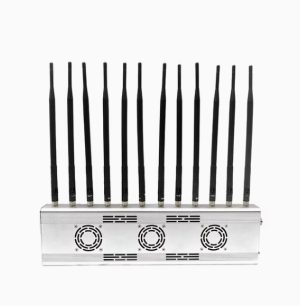As wireless technology becomes more embedded in our daily lives, new challenges arise—ranging from privacy concerns and unauthorized surveillance to mobile phone distractions and corporate espionage. To counter these problems,
electronic network device signal jammer (also known as
cell phone jammers or
RF signal blockers) have quietly gained popularity. But are they legal? Who uses them? And more importantly—
do you actually need one?
This article explores five practical, real-world use cases of signal jammers to help you make an informed decision
before purchasing.
1. Preventing Cheating in Exams: The Education Sector’s Secret Weapon
In modern classrooms, cheating is no longer limited to whispering or passing notes. Students now use
Bluetooth earpieces,
smartwatches, and even
hidden wireless cameras to receive answers during exams.
One high school in Southeast Asia faced a serious cheating scandal involving mobile phones. To combat this, administrators installed
Portable cell phone signal jammers that blocked 2G, 3G, 4G, 5G and Wi-Fi signals across the testing center. The results were immediate: no more unauthorized communication, and a sharp drop in suspicious behavior.
2. Confidential Meetings: Corporate and Government Use
In sensitive business negotiations or classified government meetings,
data leaks can be disastrous. Hackers and spies often exploit
hidden microphones,
remote access tools, or even
smart pens to record private conversations.
A tech firm based in Berlin uses
conference room signal blockers during high-level board meetings to jam cellular,
Bluetooth, and Wi-Fi signals. One incident proved its worth—spyware on an external visitor’s device attempted to upload audio to a remote server, but the
signal interference stopped the transmission cold.
3. Protecting Personal Privacy: Everyday Heroes
Have you ever felt uneasy staying at an Airbnb or changing clothes in a public gym? Hidden cameras disguised as smoke detectors or USB chargers are increasingly common.
A popular lifestyle influencer shared how her
mini signal jammer saved her from being filmed in a rented apartment. The device detected and blocked the Wi-Fi signal used by a hidden camera, effectively cutting off its feed.
For
lawyers,
psychologists, and
therapists, such devices are now part of everyday office setups to protect
client confidentiality.
 4. Managing Public Spaces: Silence Where It Matters
4. Managing Public Spaces: Silence Where It Matters
Think about the last time someone’s phone rang in a theater, church, or hospital waiting room. It’s not just annoying—it disrupts the environment.
One hospital in Tokyo installed
low-power mobile signal jammers in patient rest areas and ICUs. These devices were set on timers to minimize interference during peak medical hours, ensuring emergency calls were never blocked but regular mobile usage was gently suppressed.
5. Tactical Operations: Law Enforcement & Military
In the field,
signal blocking technology can save lives. Special forces and anti-terrorism units use
high-power vehicle-mounted jammers to block remote detonation of IEDs or to prevent suspects from calling backup.
During a hostage rescue operation in Eastern Europe, police deployed
GPS and GSM jammers around the target building. This not only stopped the captors from communicating externally but also
disabled GPS trackers that could have helped them escape.
These types of jammers are highly regulated and usually
restricted to military and police use.
Final Thoughts: Is a Signal Jammer Right for You?
High Power military Signal jammers are powerful tools—but they’re not for everyone.
Before purchasing, you need to consider:
- Legal restrictions in your country or region
- Use-case specificity: Are you protecting privacy, ensuring exam integrity, or managing noise?
- Type and range: Portable, desktop, or high-power vehicle-mounted?
- Frequency coverage: GSM, 3G, 4G, 5G, Wi-Fi, Bluetooth, GPS?
When used responsibly, signal jammers can safeguard
privacy,
safety, and
focus in an increasingly connected world. But misuse can lead to serious legal consequences.